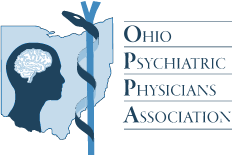The Ohio Academy of Family Physicians (OAFP) hosted a meeting of the Ohio Coalition of Primary Care Physicians on September 18. Representatives from the OAFP; the Ohio Osteopathic Association; the Ohio Chapter, American Academy of Pediatrics; the Ohio State Society, American College of Osteopathic Family Physicians; the Ohio Chapter, American College of Physicians – Society of Internal Medicine; the Ohio Psychiatric Physicians Association; the Ohio Association of Community Health Centers; and the Ohio State Medical Association (OSMA) participated in the meeting.
Attendees discussed possible outcomes and ramifications of the upcoming November general election. Democrats may pick up some seats in the Ohio House of Representatives but it is unlikely that they will pick up enough seats to change control. There are only two competitive races in the Ohio Senate.
The numbers of absentee ballots cast because of the pandemic will mean that we most likely will not have definitive results in many races on election night. Both sides are gearing up for legal challenges so litigation should be expected.
The Ohio Supreme Court races are important as control of the court is a stake. Judge Jennifer Brunner is challenging Justice Judith French. Judge John P. O’Donnell is challenging Justice Sharon Kennedy. The OSMA political action committee has endorsed the Republican candidates Justices French and Kennedy. The OAFP will hold an Ohio Supreme Court candidate forum on Wednesday, September 23, from 1:00 to 2:30 p.m. The OAFP will decide after that forum whether to recommend that the Family Medicine PAC endorse candidates. None of the other organizations have endorsed nor do they plan to endorse.
As for the current legislative session, Ohio House of Representatives Speaker Bob Cupp (R-Lima, OH) was elected as speaker on July 30 replacing Larry Householder (R-Glenford, OH) who was removed from the position following his arrest on federal bribery charges. Speaker Cupp scheduled a call with the House of Medicine on September 4 to listen and learn about our legislative priorities.
- House Bill 679 (establishes/modified requirements for telehealth services). This bill has already passed the House and could make permanent revisions to telehealth post-COVID. In addition to legislation, the State Medical Board has formed a telemedicine committee to look at regulations after emergency pandemic rules are no longer in effect. Medicaid too is looking at regulations post pandemic as is the U.S. Department of Health and Human Services (HHS). At this point, it is not entirely clear whether these various entities are communicating as to alignment of telehealth regulations post-COVID.
- Substitute House Bill 177 (allows advanced practice registered nurses (APRNs) independent practice following completion of 2,000 hours of APRN practice under a collaboration agreement with a physician or an independent APRN practitioner). Some legislators are uncomfortable with how the certified registered nurse anesthetists (CRNAs) took advantage of the pandemic to advance their cause (HB 224), so that might have some negative impact on HB 177. APRNs will try their best to push this through. Several interested parties meetings have been scheduled but have been cancelled.
- House Bill 388 (surprise billing) passed the House on May 20 and would require that reimbursement be proposed in 30 days; if parties don’t agree, they go to arbitration. Arbitration would be like a mini-trial – expensive and time consuming to execute. The Senate is anxious to pass something to protect patients from surprise medical bills.

